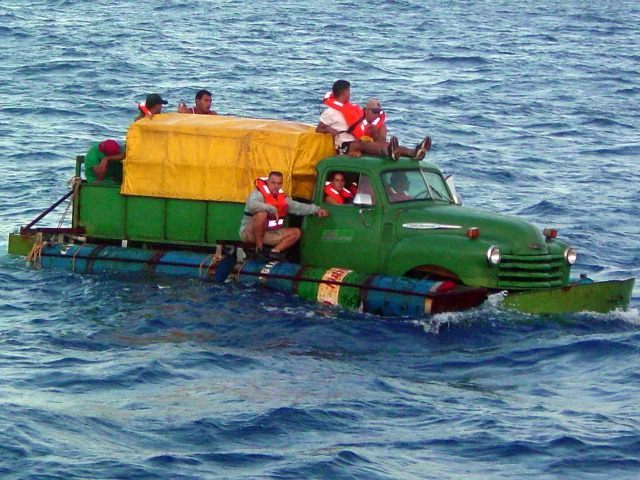In a meeting between U.S. and Cuban diplomats, the Cuban government urged American officials to change the legal status of Cuban refugees to make it more difficult for those fleeing communism to find asylum, and easier for the communist regime of Raúl Castro to restrict its citizens’ mobility.
The talks were scheduled to discuss a growing crisis on the Nicaragua/Costa Rica border, where thousands of Cuban nationals seeking political asylum in the United States are currently stranded. The Nicaraguan government, run by former Marxist guerrilla Daniel Ortega, enjoys close ties with the Cuban communist government and has deployed its military to prevent Cuban nationals from entering its borders, despite possession of legal visa documents from Costa Rica. Nicaragua has targeted Cuban families near the border with tear gas and water cannons. Costa Rica has vowed to give sanctuary to the Cuban nationals until they can find legal status elsewhere.
The United States has finally taken on a diplomatic role in the crisis, sitting down with Cuban officials Monday to discuss a way to get the thousands of refugees stranded in Central America to the U.S.
In that meeting, the Cuban government made its priority a push to change American political asylum laws, so as to make it more difficult for the victims of the regime to find sanctuary. The Cuban government “reiterated its concern over the ‘wet foot-dry foot’ policy, which encourages irregular migration and violates the spirit and the letter of agreements currently active,” it said in a statement, according to Miami’s El Nuevo Herald. Cubans are allowed to remain legally in the United States upon arriving due to the Cuban Adjustment Act of 1966, known colloquially as “Wet Foot-Dry Foot.” The Cuban government refers to the law as the “Assassin Law.”
“We are aware of the situation in which thousands of Cuban migrants traveling irregularly from South America and Panama north through Costa Rica are implicated, and that they are stranded there due to Nicaragua’s decision to close the border,” The U.S. Department of State said in a statement to the Herald Sunday. “We are concerned for their security and the topic will be discussed on Monday.”
In its official statement following the talks Monday, the Cuban government condemned both the migrants for seeking to escape Cuba and the United State for aiding those looking for an exit from communist oppression. It condemned “Cuban Adjustment Act, and particularly the implementation of the so-called ‘wet foot/dry foot’ policy, which grants Cubans a differentiated treatment which is unique in the world, since they are immediately and automatically admitted into the United States, regardless of the ways and means they use, even if they arrive in the US territory through irregular ways,” but noted that the American delegation “indicated that its Government does not have the intention to introduce changes in the migration policy applied to Cuban citizens.”
Few Cuban nationals appear to believe this following President Obama’s major concessions to the Castro regime in December 2014. The American Coast Guard reported a 117 percent increase in the number of Cuban refugees found traveling towards the United States between December 2013 and December 2014 following the President’s announcement of “normalization” with Cuba. It is estimated that 24,000 Cubans attempted the trek towards Key West between December 2014 and August 2015, and these statistics do not include those who attempt to escape through Central America.
In an announcement Monday, a Costa Rican government official confirmed that San José diplomats will be meeting with American and Mexican officials to discuss a way to get the refugees into the United States without having to cross through Honduras. He told the concerned refugees that “there will be no deportations” in the shelter, as well, as “Costa Rica is respectful of human rights.”

COMMENTS
Please let us know if you're having issues with commenting.